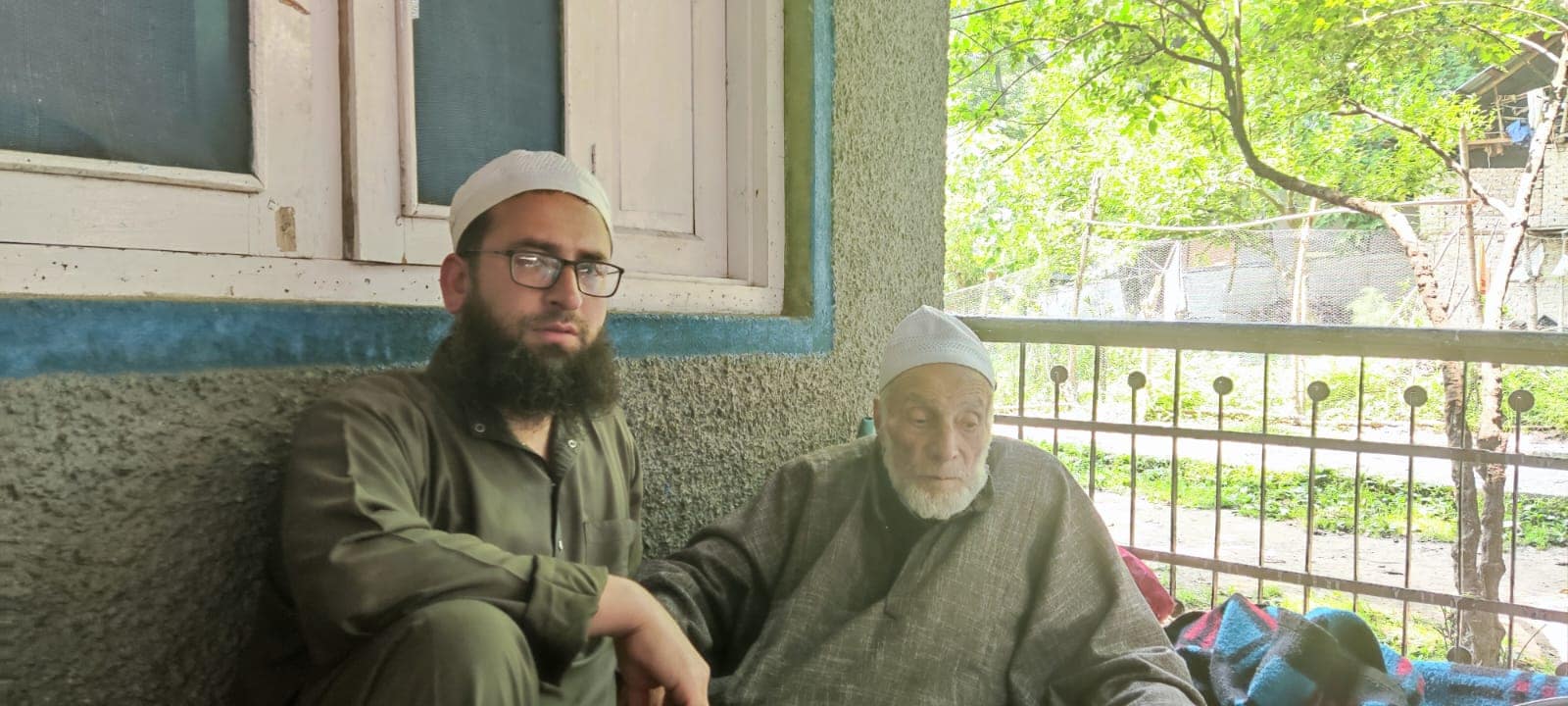Almost all senior members of the Malik clan in Batkoot village near Pahalgam in Kashmir can remember personal anecdotes of their association with the Amarnath Yatra, but they will have none better than a 95-year-old frail, retarded man walking with a little hump. Have you been
Ghulam Nabi Malik has conducted the Yatra for over 60 years and he knows all the mountains and cave routes; Shortcuts and high altitude pastures and lakes. He can recite mantras in reverence of Lord Shiva and can even sing them with ease. But his treasured moment has been when Tara Devi, the wife of Maharaja Hari Singh, gave him a copper tray filled with dates for the service he had performed at the cave temple in 1947. “I was very young and he gave me a copper plate saying you did one. Good work,” said Malik at his home in Batkoot village, which is about 10 km from Nunwan, the entry point to Pahalgam that serves as a base camp for the travelers. From here, the travelers begin the three-day journey to the cave through the halt camps of Chandanwari, Sheshnag and Panchtarni.
Several decades after his great-grandfather named Buta Malik discovered the holy cave, the Malik family expanded and spread throughout the village. Legend has it, that in 1850, he had taken his flock of sheep and goats to the pastures beyond Lake Sheshnag when he accidentally discovered the cave. Excited by what he saw, he hurried down to tell the Kashmiri Pandits at the neighboring Mattan temple about his difficult experiences. Thereafter, the cave became both popular and revered, and the visit became an annual ritual. Maliks, Pandits and non-local sages began to conduct pilgrimages almost every year, ending with worship on ‘Shravan Purnima’.
Malik was carrying on the legacy of his ancestors till early 2000, but soon thereafter he was sacked by the then state government, which created Shri Amarnath Shrine Board, a special body under the state governor to conduct the yatra.
It has been nearly 20 years since the Maliks separated from the yatra, but that hasn’t stopped them from rewriting the bond they share with the pilgrims.
This year the annual Amarnath Yatra began after a gap of two years due to the outbreak of Kovid-19. So far, more than 70,000 pilgrims have had ‘darshan’ of the icy stalk or ‘Shivalingam’. The government expects 8 lakh people to visit the cave this year – a far cry from the time when Malik used to travel for two weeks with a few thousand pilgrims.
As Malik extended himself to the verandah to face the sun, he recalled how the visit strengthened the bond between Hindus and Muslims. A glimpse of that age-old practice is still visible today when local Muslims carry weak and handicapped pilgrims on palanquins and horseback to the cave and back. In return, the pilgrims share their experiences during the long, difficult and sometimes, dangerous journey.
Malik says that some pilgrims who regularly visited the cave for 20 to 30 years stopped at Batkoot village and inquired about their families, but since then the pilgrims have been traveling in security vehicles. Those trips have been put on hold.
“Many travelers will feel that the journey is incomplete, unless they visit our family,” he said.
Malik’s grandson Iqbal Ahmed says that the youth often heard stories of pilgrimage from their elders. “My grandfather has lived the travel experience. He has forgotten some due to old age, but remembers them quickly if someone mentions it,” Iqbal said.

Nabi Malik’s cousin Mohammad Akram Malik said, “The yatra was a fine example of brotherhood anywhere in the world.”
This year the Yatra is being guarded by an additional 35,000 troops and nothing is left to chance.
Terrorist groups have been repeatedly threatening to target the Yatra, saying that “under its garb some nefarious designs are being carried out to settle outsiders in the Valley”.
However, Malik of Batkoot sees the journey in a different context; As a fulfillment of the faith of our ancestors in communal harmony and integrated culture.
read all breaking news, today’s fresh newswatch top videos And live TV Here.